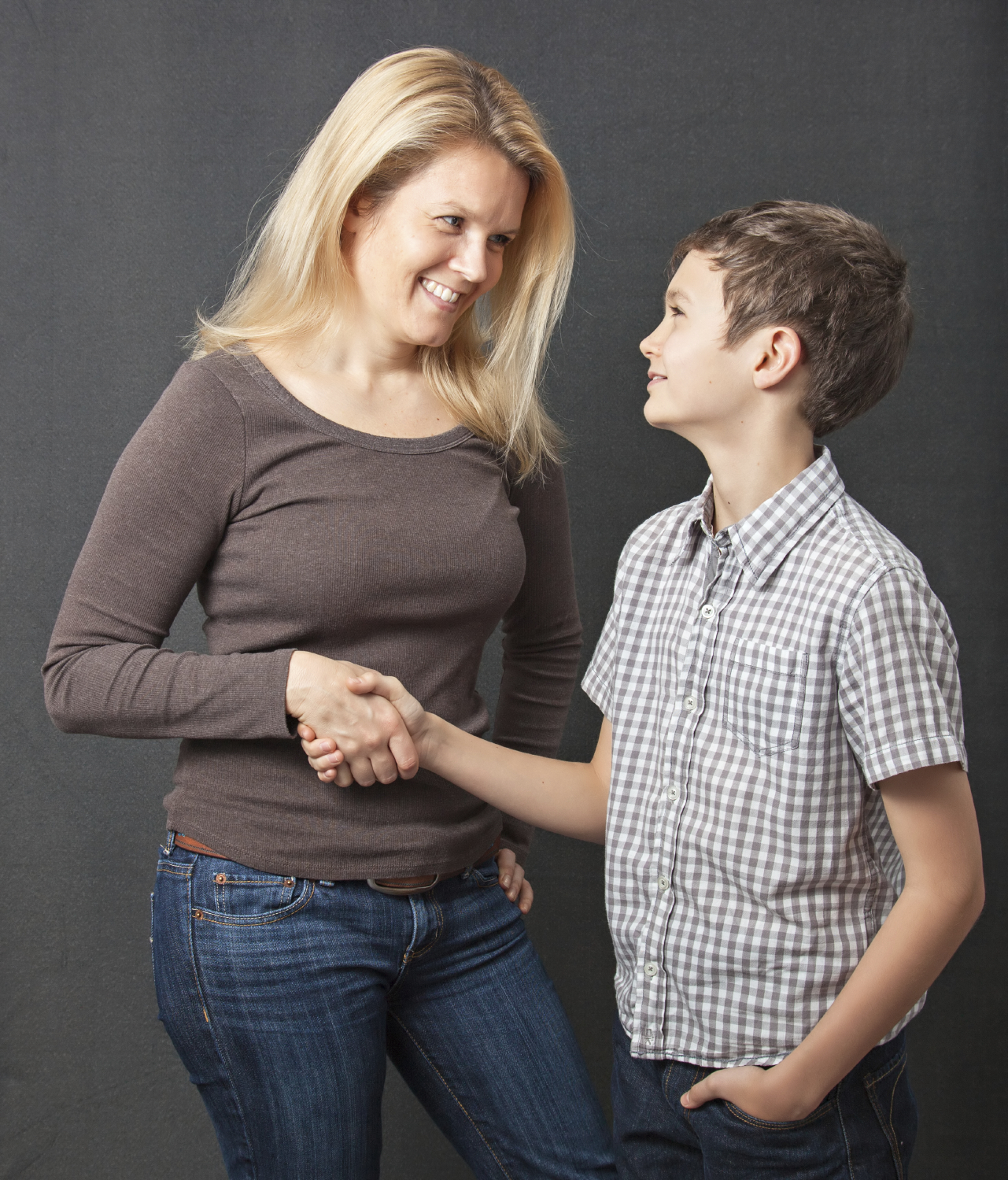 Before I was a parent, I wondered why my 6-year-old nephew rarely said hello or good-bye to me. Now I know that teaching children manners takes prompting, guidance, modeling, repetition and the acceptance that most 6-year-olds will bear no resemblance to well-mannered dinner guests, even if you stick them in a Downton Abbey boot camp.
Before I was a parent, I wondered why my 6-year-old nephew rarely said hello or good-bye to me. Now I know that teaching children manners takes prompting, guidance, modeling, repetition and the acceptance that most 6-year-olds will bear no resemblance to well-mannered dinner guests, even if you stick them in a Downton Abbey boot camp.
Heading into the holiday season, it’s natural to wonder whether Junior should really be saying thank you unprompted, and whether your tween should give up her bed to houseguests with ease. We spoke with etiquette experts about rules for common situations and how to raise children into gracious adults.
The age range of early elementary to almost-tween is a period when children are entering more social situations without their parents next to them, says Sheryl Eberly, co-author of 365 Manners Kids Should Know.
“Knowing good manners gives the child a level of confidence about what to expect, and what is expected of them, in social situations. No one wants to be clueless about these things. A parent wouldn’t think of sending a child off to school without a backpack and supplies. Nor should a child head off to a party with a friend without some introduction to basic skills for being a good guest,” Eberly says.
Receiving gifts
Talk with children before they open presents. Children say what they think, so they need to learn how to be honest while still being kind to others, says Deborah King, president of Final Touch Finishing School, founded in Seattle in 1989.
“Tell them it’s not polite to show we don’t like something verbally or nonverbally with a roll of the eyes or a sigh. It isn’t even necessarily the gift itself, it’s the fact that someone thought of you. You may not like the green sweater Grandma knit, but thank [her] for the thought behind the green sweater. They won’t feel like they are lying if they say, ‘Thank you so much for thinking of me. Green is my favorite color,’” King says.
Thank-you notes
“How to live with a spirit of gratitude is one of the best things you can teach your child early on — and it’s especially relevant during the holiday season. Encourage your child to write thank-you notes early and often — even for reasons that might seem small. Maybe a friend’s family baked your child cookies, or invited him or her to join some kind of holiday family gathering.
There are also occasions when a written thank-you note is a must: When your child receives a gift, is hosted overnight, or is shown some special favor or gesture of kindness. In general, send notes within a week,” says Caroline Eberly, who cowrote 365 Manners Kids Should Know with her mother, Sheryl Eberly.
“Give your child a party task they like doing, whether that means taking responsibility for offering each guest a drink or introducing guests to the family pet.”
King recommends creating a thank-you note box containing supplies such as craft materials and personalized stationery.
Hosting houseguests
“Talk beforehand about how it’s an honor and a privilege to have Grandma and Grandpa with us for a week. Have [the children] help plan outings. Then, as the parent, think through what your child needs for a successful visit, such as regular playtime on their own,” and then help ensure those needs are met, King says.
Sheryl Eberly reminds parents to set a few house rules with kids around potential trouble areas before guests arrive, such as how much screen time is allowed and which rooms are open for horseplay.
Party hosting
 With your kids, role-play how to greet guests. Have them practice opening the front door, saying hello to parents’ friends and adult relatives, shaking hands or trading hugs, and offering to hang up jackets, says Sheryl Eberly.
With your kids, role-play how to greet guests. Have them practice opening the front door, saying hello to parents’ friends and adult relatives, shaking hands or trading hugs, and offering to hang up jackets, says Sheryl Eberly.
“Remind children to look guests in the eye when they say hello. And give your child a party task they like doing, whether that means taking responsibility for offering each guest a drink or introducing guests to the family pet,” King says.
Before the party, decide how involved your children will be throughout the evening, but make sure to include them in saying good-bye to guests, thanking them for coming with words, eye contact and a smile.
Attending a party
This is a great age to teach children how to introduce themselves. Even if they are too shy to follow through, role-playing this skill means they will have an awareness of the expectation and know how to do it, King says.
For the notoriously picky eater, introduce the idea of the thank-you bite. “The food is a gift someone prepared for you. I always say, ‘Take a thank-you bite. Find something on the plate or from the buffet line that you can take one bite of,’” King says.
Talk to your child beforehand about these rules, too:
- Don’t give away food you don’t want.
- Don’t ask for juice instead of water or ask outright for a food you prefer to the ones offered.
- Keep your mouth closed while chewing.
- Stay seated and ask to be excused.
- Say thank you for the meal and the event.
- Leave the party promptly when it’s time.
Respecting holiday customs
“Ease any difference in traditions ahead of time by asking parents of your kids’ friends what your child can expect when he or she is at their home. Have a conversation with your child about whatever differences might be present, and encourage your child to try new things.
Let your child know it’s always polite to engage and ask questions about another family’s customs — there’s no need to feel silly or stupid. In fact, your hosts will likely be honored by you asking. Say, ‘Forgive me for not knowing, but what’s the meaning behind . . . ?’ or, ‘Tell me a bit about why you do things that way.’ In the same manner, when you’re welcoming guests into your own home, ask ahead of time how they like to celebrate the holidays and reflect that in your preparations,” Caroline Eberly says.
Conversation skills
To help kids understand the importance of learning conversation skills, ask your child who are some of the friends they like talking to best and why, says Arden Clise, president of Clise Etiquette in Seattle.
At her company’s etiquette classes for children, participants play a game called Talking Takeout. Place slips of paper with open-ended, interesting questions (“If you could have any talent, what would you choose?”) inside a takeout food container and have each person answer one at the dinner table to practice the art of conversation.
Etiquette classes for kids
- Final Touch Finishing School offers a wide range of classes for children, including Young Ladies & Gentlemen, Parts I & II (ages 6–11); and Royal Tea (ages 4–6). Classes are available in Mill Creek, Kirkland, Bellevue, Edmonds, Lacey and Auburn. 206-510-5357.
- Clise Etiquette offers children’s etiquette and social skills classes in Seattle, including Modern Manners for Modern Children, Part I: Table Manners and More (ages 7–12); and Modern Manners for Modern Children, Part II: Parties, Playdates and More (ages 7–12). 206-708-1670.











